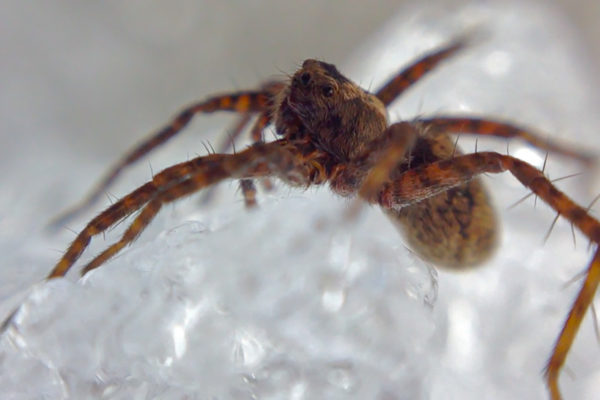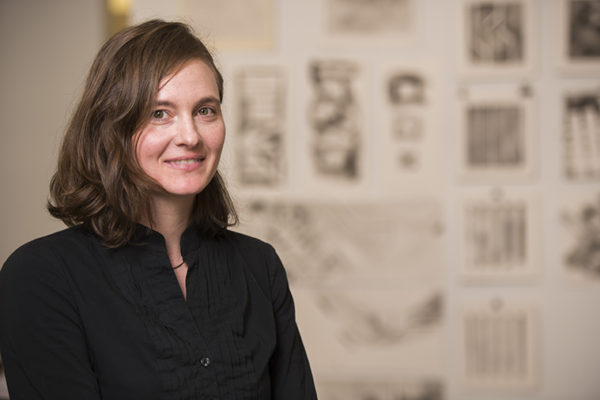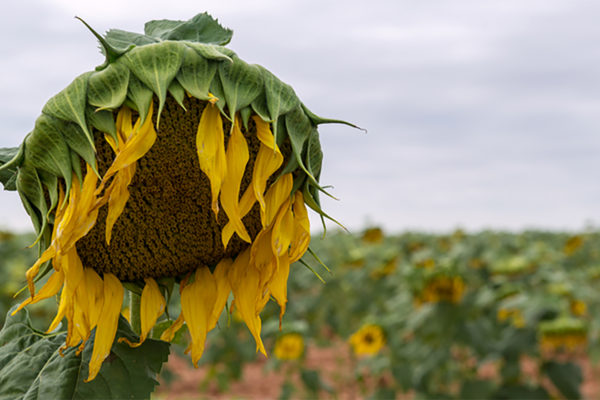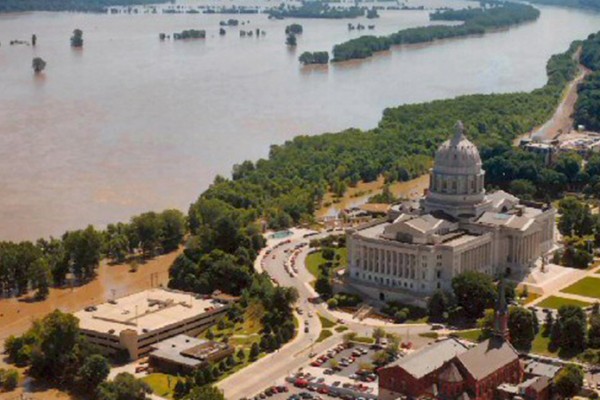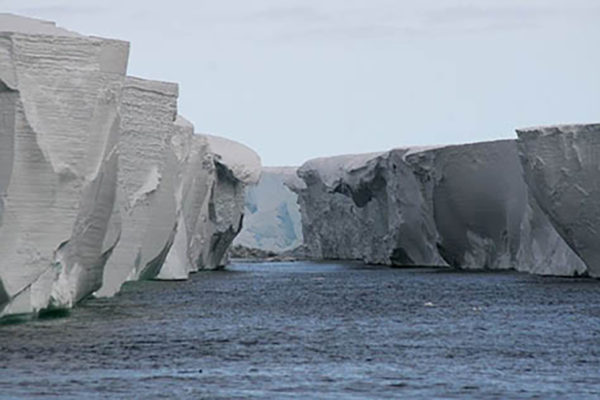Warming alters predator-prey interactions in the Arctic
Under warming conditions, Arctic wolf spiders’ tastes in prey might be changing, according to new research by biologist Amanda Koltz in Arts & Sciences — initiating a new cascade of food web interactions that could potentially alleviate some impacts of global warming.
Courage in the face of climate change
Thirty years ago this month, the term global warming became part of our popular conversation. Doctoral candidate Andrea Godshalk from the Sam Fox School of Design & Visual Arts reflects on the recent Saint Louis Climate Summit and the challenge of re-imagining key infrastructure, systems and values.
Video: CRETE House debuts at Solar Decathlon 2017
Over the past two years, Washington University students have worked with industry partners to design, fabricate and now finally construct CRETE House as part of Solar Decathlon 2017.
Mutant plants reveal temperature sensor
In a serendipitous moment, scientists studying light sensing molecules in plants have discovered that they are also temperature sensors.The discovery may eventually allow them to design crop varieties that are better able to cope with a warming world.
Major Midwest flood risk underestimated by as much as 5 feet, study finds
As floodwaters surge along major rivers in the midwestern United States, a new study from Washington University in St. Louis suggests federal agencies are underestimating historic 100-year flood levels on these rivers by as much as five feet, a miscalculation that has serious implications for future flood risks, flood insurance, and business development in an expanding floodplain.
Weighing the Antarctic ice sheet
The slow rebound of the bedrock as ice melts can be used to weigh the Antarctic ice sheet. Calibrating rebound will make it possible to measure how much mass the has lost since the ice sheets reached their maximum extent more than 20,000 years ago and how much it is currently losing. Two National Science Foundation grants will fund the installation of seismographs to calibrate crucial parts
of the Antarctic ice-weighing machine.
Field to deliver talk on the velocity of climate change
Christopher Field, PhD, one of the leaders of the United Nation’s Intergovernmental Panel on Climate Change will be on the campus of Washington University in St. Louis as an I-CARES Distinguished Speaker at 5 p.m. Tuesday, Sept. 21, in Graham Chapel. Field and a team of scientists have calculated how fast temperature zones are likely to move across the planet in the future and whether plants and animals will be able to migrate fast enough to stay ahead of the heat.
Symposium on America’s Energy Future Nov. 2
America has the potential to solve its energy crisis over the next decade, but doing so will require immediate investment in clean energy technologies, says Mark S. Wrighton, chancellor of Washington University in St. Louis and vice chair of a National Resource Council report on America’s energy challenges. The report will be the topic of a symposium to be held from 12:30 to 5:30 p.m. Monday, Nov. 2, in the May Auditorium in Simon Hall on the Danforth Campus of Washington University in St. Louis.
International climate change conference to examine roles of China, United States
Distinguished environmental law and policy scholars and scientists from around the country will gather at WUSTL Oct. 30 to discuss “International Climate Change: Post-Kyoto Challenges.”
International Climate Change conference Oct. 30
Distinguished environmental law and policy scholars and scientists from around the country will gather at Washington University in St. Louis to discuss “International Climate Change: Post-Kyoto Challenges,” from 8:30 a.m. to 4 p.m. on Oct. 30 in Anheuser-Busch and Seigle Halls. “The international community is aiming to complete negotiations by the end of 2009 on a new climate change agreement to take effect when the Kyoto Protocol expires in 2012,” says Maxine Lipeles, J.D., director of the Interdisciplinary Environmental Clinic and senior lecturer in law. “This conference will address the critical question of what roles the world’s two largest emitters – the U.S. and China – will play under the new agreement.” The conference, hosted by Washington University School of Law’s Whitney R. Harris World Law Institute, is free and open to the public, but registration is required.
View More Stories
